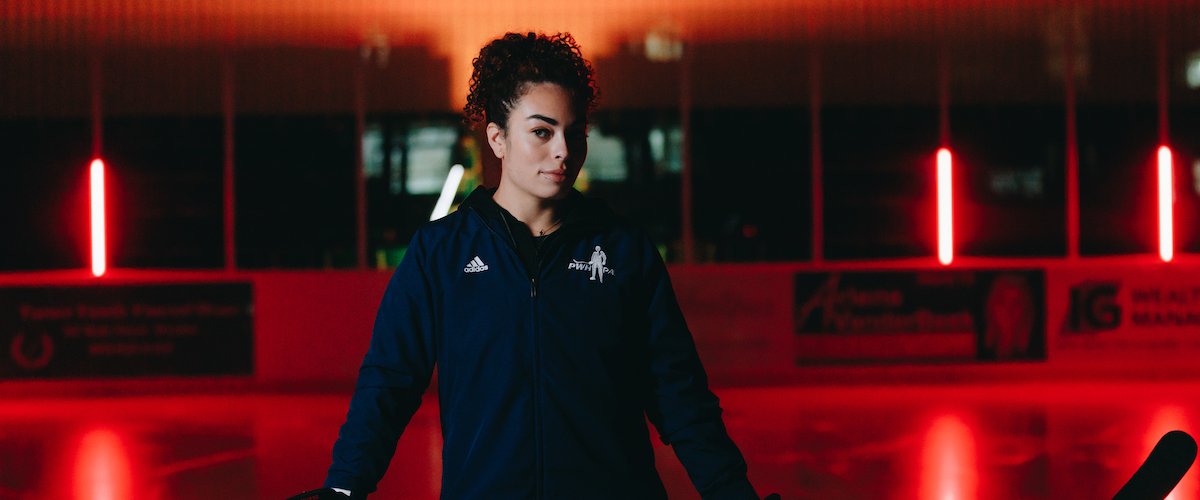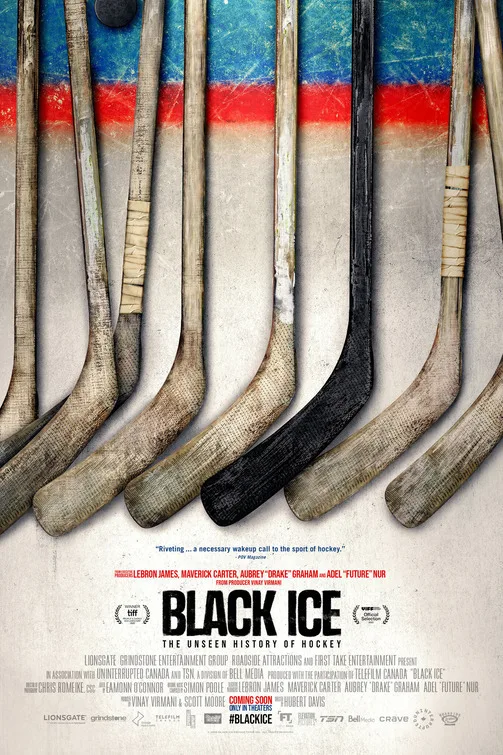The importance of Black athletes in the history and culture of American sports is relatively plain. However, the sports that come to mind are likely ones with either predominantly Black rosters like football and basketball, or ones with pinpointed moments of historical bookmarks like Jackie Robinson’s entrance into baseball. From director Hubert Davis, “Black Ice” is an icebreaking expose on the influence and oppression of Black athletes in Canada’s most treasured sport, hockey.
“Black Ice” is a historical document within the sphere of sports and outside of it, with anthropological context added. The migration of Black people to Canada from the southern United States constructed a flimsy pillar of national identity that believes Canada to be an escape from America’s racism, and this is partially to blame for how anti-Black racism within the nation was swept under the rug.
Through multi-generational testimony from Black hockey players, we learn about the racism endured by athletes from teammates, coaches, leagues, and fans alike who believe they don’t belong in the sport. There’s no timidity in the doc’s testimonies. The film affords its subjects the same blunt expression that has been weaponized against them, and the result is unfiltered emotional depth that translates poignantly.
“Black Ice” understands at its core the fatigue of Black people used for their talents and skill, paraded as athletic representation of the cities they play for, who are constantly abused privately and publicly. From covert comments like “uncoachability” to equipment managers dressing in Blackface and coaches berating Black players for warming up to rap music, there’s no limit to the casual implementation of violence and absolutely zero room for interpretation.
“Black Ice” is about Black hockey players, but also contains damning examinations of the ways that sports culture is a microcosm of general culture. Hockey is a Canadian pride and joy, and with that being said, the abuse allowed within it is itself a statement of priority. One of the most horrifically ironic moments in the movie details a white man who threw a banana at a Black player, only to come out and say he wants to move past it and continue forward with his career aspirations in policing.
One of the film’s strongest tenets is its multi-generational and gender inclusive lens. On the younger end of the spectrum, we hear stories about the monetary costs playing hockey—from gear to lessons to team expenses—that create a level of financial inaccessibility in the predominantly white sport. Yet we also hear cherished memories from the sport’s older athletes and pioneers, who would pour out buckets of water on a cold day to create their own rink. “Black Ice” examines the evolution from outright exclusion to predatory inclusion that took place in the sport.
Even with all of its jarring plight, what triumphs over the film’s tone is the love the athletes have for the sport. It is not necessary to be a hockey fan to absorb “Black Ice.” The players’ resilience, passion, and grit are the true subjects, and our admiration for the players motivates the film even as racism demands spotlight. It’s a symbiotic relationship, however unfortunate, that paints a true portrait of the culture of hockey, the importance of Black athletes within it, and the greater significance of what our cherished entertainments reveal about us.
Now playing in theaters.




















